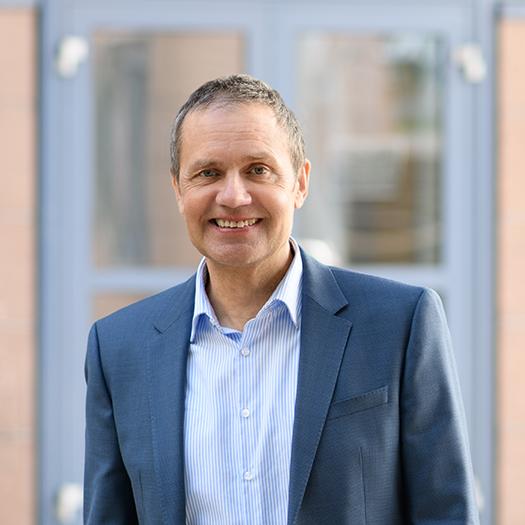30 Years of ZEW Mannheim
Dates and NewsThe ZEW – Leibniz Centre for European Economic Research celebrated its 30th anniversary on Monday, 8 November 2021. Since its foundation in 1991, the institute has become one of the most important voices in economic research and policy advice. “Specialising in empirical microeconomics has been ZEW’s trademark from the very beginning. This means that we have always focused on people, firms and markets in our research and that we have also kept an eye on feasibility when providing advice,” says ZEW President Professor Achim Wambach. “All research departments have developed their own unique competencies and are internationally respected. At the same time, ZEW has recently expanded its research in the area of market design. Here, we address questions on how markets can be organised intelligently to ensure a competitive and sustainable economy in the long run.”
Founded shortly after German reunification, ZEW Mannheim is one of the younger members of the club of German economic research institutes. In the 30 years, many talented people have worked at the institute. “We are proud that of our more than 750 alumni, about 50 now hold professorships at universities. ZEW sees its employees as the foundation of its expertise and its great success. ZEW staff are in great demand. Many of them hold important positions in science, business and ministries,” says Thomas Kohl, ZEW’s director.
The combination of research and policy advice is characteristic of institutes in Germany in international comparison. While policymakers in many other countries usually seek advice from politically oriented think tanks, institutes in Germany attach great importance to scientific independence. This is an approach that contributes significantly to the resilience of the German economy in crises. “It is also thanks to independent economic policy advice that Germany and Europe are comparatively robust despite the COVID-19 crisis. Experiences from the financial crisis were quickly taken up by academia and have been incorporated into policy advice. Instruments such as the short-time working scheme are now widely adopted by other countries. In addition, Germany is faced with further mammoth tasks. The energy transition and digitalisation are bringing about enormous structural change. In tackling these challenges, however, we cannot fall back on past experience, because they are completely new. But with the findings from independent research, we can provide policymakers in Germany and Brussels with fact-based recommendations so that they can decide which measures should be used to solve ecological, economic and social issues consensually in a rapidly changing world,” says Wambach.
On the occasion of its 30th anniversary, ZEW Mannheim hosted a panel discussion with international guests on the topic: “After the election. Setting the economic policy course for Germany and Europe – What’s the contribution of economic research institutes?”


